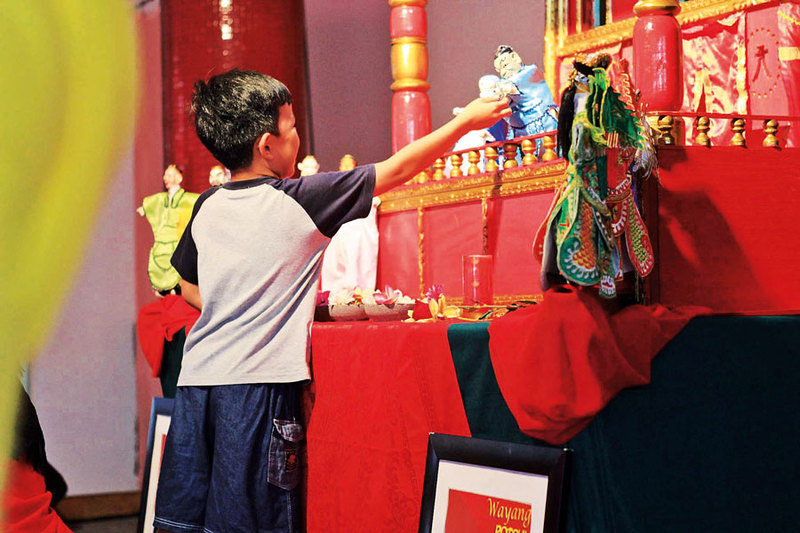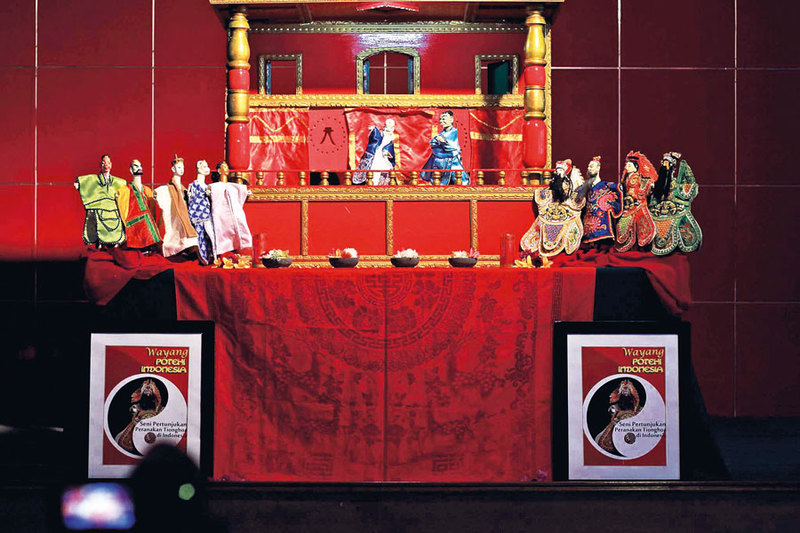Blessed with vast cultural influences, Indonesia has long been a melting pot. One local performance art that’s heavily influenced by the Chinese culture is now growing in popularity.

Known as Wayang Potehi, the hand-puppet performance first graced Chinese temples in Java some centuries ago. The word potehi is derived from three Hokkien words: poo (cloth), tay (bag) and hie (puppet). Long banned under the New Order years, the art only came back alive during the presidency of the late Abdurrahman Wahid, also known as Gus Dur, and has since been widely performed at public places.
That is, with major thanks to the members of the Rumah Cinwa community, who this past Chinese New Year, performed at Pasar Taon Baru at Kota Kasabelanka Mall, Jakarta.
Rumah Cinwa (Rumah Cinta Wayang) Founder and Chairperson Dwi Woro Retno Mastuti has put long hours and a lot of love into establishing a community for those passionate about Indonesian-Chinese hybrid culture. Established in 2014, Rumah Cinwa took in members from different backgrounds, many of whom are university students.
“It’s for the sake of culture. I am Javanese but I love Wayang Potehi,” she said, “[Through the community] we leave our individual egos and choose to work together, because we share the same vision,” said Mastuti, whose day job is a lecturer of Cultural Studies at the University of Indonesia.

Mastuti has also published a book on the subject, entitled “Wayang Potehi Gudo”, where she warned of an imminent threat to the future of Wayang Potehi in Indonesia and called for widespread support for the art. As of now, she wrote, only two puppet makers remain, both of whom reside in Tulungagung and Jombang, East Java.
It’s for the sake of culture. I am Javanese but I love Wayang Potehi. Through the community, we leave our individual egos and choose to work together, because we share the same vision.
-Dwi Woro Mastuti, a Chairperson of Cinwa and a Lecturer at the University of Indonesia.
Mastuti said she sees in the art of puppetry an effective medium to deliver social criticism, all the more reason to support its existence.
“As humans, we are cultural devices. We’ll have culture as long as we want it, and I wish for the young generation to preserve and love Wayang Potehi the way they feel for other traditions,” Mastuti said.
One of the ways Rumah Cinwa is trying to attract the youth is by performing classical stories with a contemporary twist, oftentimes incorporating comedy elements, and always adapting them to local context.
At Rumah Cinwa, members of the community continue to gear up preparations for more outreach and to spread love for the iconic puppetry, this time with more confidence.







